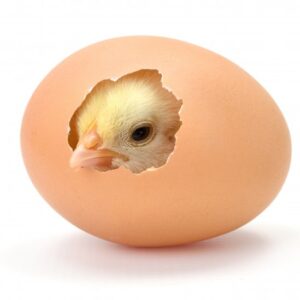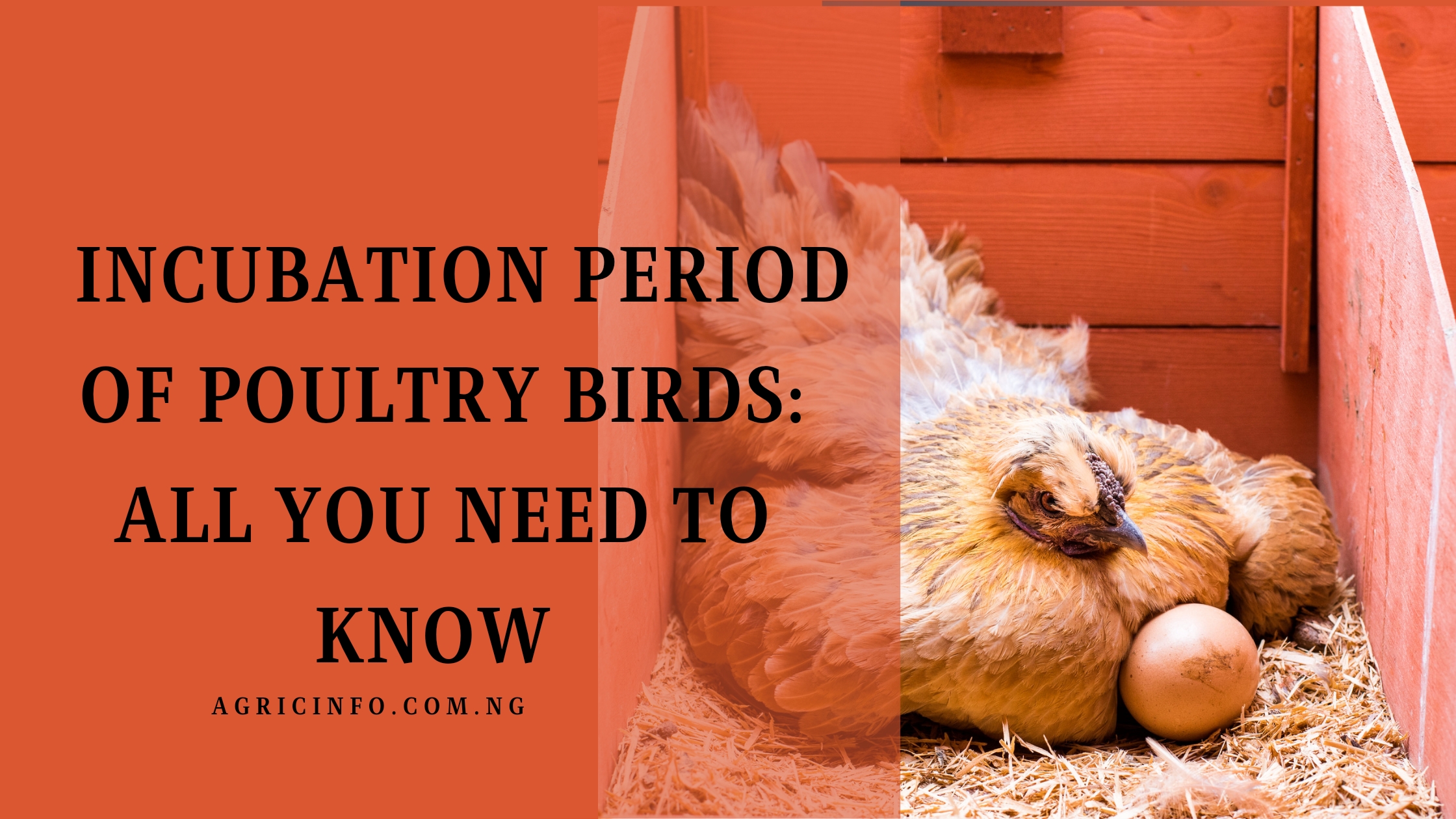The Incubation Period of Poultry Birds: Complete Guide
Have you ever wondered how a tiny egg transforms into a fluffy chick? This is what is referred to as the Incubation Period of Poultry Birds.
The answer lies in the process of incubation, which is an important stage in the life cycle of poultry birds.
If you want to find out how all of these happen, spare a few minutes of your time to go through this.
This article delves deep into the incubation period of poultry birds, exploring its duration, factors affecting it, and the role it plays in successful poultry hatching.
First of all,
What is the Incubation Period?
The incubation period is when a fertile egg is laid and when the chick hatches.
During this period, the developing embryo undergoes a series of complex transformations, which ultimately lead to the birth of a new life.
Successful incubation is needed for the survival and development of poultry birds.
It provides the optimal environment for the embryo to grow and mature, to ensure a healthy and viable chick.
Proper incubation can help improve hatching rates and chick quality.
When is the Incubation Period of Poultry Birds?
The incubation period of poultry birds varies depending on the species of poultry bird.
Here’s a quick overview:
- Chickens: 21 days
- Ducks: 28 days
- Geese: 30-35 days
- Turkeys: 28 days
- Guinea fowl: 26-28 days
- Quail: 17-23 days
Here is the overview of the incubation periods in some poetry birds.
However, there are some factors affecting the incubation period.
What are they?
Let’s find out together.
What are the Factors Affecting the Incubation Period?
Several factors can influence the incubation period, including
- Temperature: Sometimes, it is hard to maintain a consistent temperature needed for proper embryonic development.
- Humidity: Adequate humidity prevents the eggs from drying out and ensures proper membrane development.
- Egg turning: Regular turning of eggs ensures even distribution of heat and prevents the embryo from sticking to the shell.
And when it doesn’t, it affects the period of hatching.
- Genetics: The breed of the bird can influence the incubation period.
- Environmental factors: External factors like noise and light can also impact incubation.
- You may like to read How long does a chicken egg take to hatch
Tips for Successful Incubation
Now that you know what incubation of poultry birds is and the factors that affect them, how do you make sure that your poultry birds are not affected during incubation?
Here are some tips to optimize your incubation success:
- Use a reliable incubator: Invest in a high-quality incubator to maintain consistent temperature and humidity levels.
- Select fertile eggs: Also ensure you’re using fertile eggs from healthy breeding stock.
- Monitor temperature and humidity: Regularly check and adjust the incubator settings to maintain balanced conditions.
- Turn the eggs regularly: Turn the eggs at least three times a day to prevent the embryo from sticking to the shell.
- Candling: Use a candling lamp to check the development of the embryo and remove infertile or non-viable eggs.
- Maintain hygiene: Keep the incubator and surrounding area clean to prevent the spread of diseases.

Key Takeaway
The incubation period of poultry birds is a critical stage in the life cycle of poultry birds.
You also need to understand the factors affecting it so as to implement proper incubation practices to improve hatching rates and chick quality.
We have listed out some tips the tips in this article, so you can increase your chances of successfully hatching healthy chicks with them.
We hope you find this article helpful.
Do you have any questions or experiences related to the Incubation Period of Poultry Birds? Share your thoughts and insights in the comments section below!
FAQs about the Incubation Period of Poultry Birds
What are the signs of a successful incubation?
- Candling: When candling the eggs, you should see a network of blood vessels developing within the egg. This indicates a live embryo.
- Movement: As the incubation progresses, you may notice slight movements within the egg, especially during the later stages.
- Peeping: Towards the end of the incubation period, you may hear faint peeping sounds coming from the egg. This shows the chick is getting ready to hatch.
What are the common causes of incubation failure?
- Infertile eggs: Using infertile eggs is a primary cause of incubation failure.
- Incorrect temperature or humidity: Maintaining consistent temperature and humidity levels is crucial for successful incubation.
- Improper egg handling: Rough handling of eggs can damage the developing embryo.
- Disease: Diseases can spread through the eggs and affect embryo development.
- Genetic factors: Some breeds of poultry birds may have lower hatching rates due to genetic factors.
How often should I turn the eggs during incubation?
It’s recommended to turn the eggs at least three times a day.
This ensures an even distribution of heat and prevents the embryo from sticking to the shell.
Can I open the incubator during incubation?
It’s best to minimize opening the incubator during incubation to maintain consistent temperature and humidity levels.
However, brief checks are acceptable, especially during the last stages of incubation.
What should I do when the chicks hatch?
Once the chicks hatch, transfer them to a brooder, which provides a warm and safe environment for them to grow and develop.
Ensure they have access to food and water and monitor their health closely.


